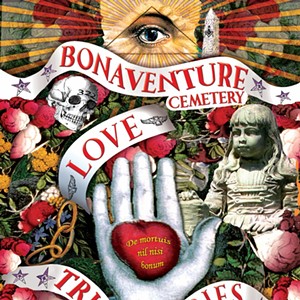WE DON’T teach young people about sex very well. The Centers for Disease Control says that fewer than half of American high schools and one in five middle schools are teaching essential sex education topics.
With that in mind – and a lifetime of literary creativity to go along with it – a former Savannah-Chatham County school board president has released a new work of fiction that dives into sexuality, public health, teen pregnancy and the turning of young lives.
“We act as if young people aren’t having sex,” says Diane Cantor, a retired social services administrator who served one, four-year term as local school board president starting in 1999. “We seem to be afraid to talk about contraception in an open way.”
“When Nighttime Shadows Fall” is a character-driven novel and Cantor’s most recently published book. She’s written her entire adult life. But work demands meant that this is only her second published novel. The idea for it began in the 1970’s.
“‘When Nighttime Shadows Fall’ is about empowering people to take hold of their own lives,” says Cantor, who also headed up housing and other non-profits. “I have worked in social services my whole life. And there was a job I had that involved things like this.”
The book’s main character, a social services worker, contacts women in their first trimester of pregnancy to enroll them in health programs. This takes place in 1970’s rural Georgia, north of Cantor’s childhood home of Atlanta. Needless to say, the job isn’t easy.
Some women are afraid – of partners or society. They doubt their own agency and ability. Laura, Cantor’s young and wide-eyed protagonist, barrels through her own inexperience and the obvious rural-urban mistrusts to become a friend, door-opener and life-changer.
“I always thought, when I started writing this, that I was writing about a time that was past,” says Cantor, who fiddled with the book for decades. “One of the sad things that I feel, seeing the debate over affordable health care, is that we could be going back.”
The obvious rural-urban mistrusts still exist today. They’re leading America to poorer health outcomes. It’s a toxic combination of pride and poverty that Cantor brings to life.
“I have met people who were very frank about their need for services but they objected to the condescension,” she says. “They felt it was very unfair, some of the things that rich folks come up with for poor folks to eat or to do and the double-standards.”
One of Cantor’s characters in “When Nighttime Shadows Fall,” Mavis, responds angrily when Laura tells her what to feed her baby. “Sometimes we all have a desire to assert ourselves,” Cantor says of the character, Mavis. “We don’t want to be pushed around.”
Cantor began asserting herself in the publishing world a few years ago, when she released “The Poisoned Table,” a novel about slavery based on a real woman living in 19th Century Georgia, British actress Fanny Kemble. She’s now working on a third, involving theft, identity and writing.
“It feels like a real luxury to me,” she says now of writing, which she always did on the side lines of her busy career. “To be able to do that and invest more time in that instead of always having to feel that I had to squeeze it in.”
In the end, Laura learns a lot about herself from her work. And perhaps Cantor would say the same of her years as school board president. “People often say that serving on a school board is thankless,” Cantor says. “But it wasn’t at all. Working for better schools and the people that I met in the community have greatly enriched my life.”

























